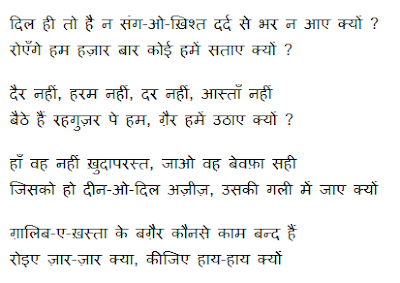Rajkumar est un plagiat éhonté de Robin des bois, Prince des voleurs, et plus encore de Sacré Robin des Bois, la parodie réalisée par Mel Brooks. Pankaj Parashar a visiblement estimé que l'histoire serait meilleure si le shérif avait un frère jumeau parfaitement inutile à l'intrigue. A part cela les principales différences qui distinguent Rajkumar de ses modèles sont un goût très sûr en matière de costumes flashy, une prédilection pour les décors en carton pâte pitoyables et pour les effets spéciaux risibles, et Madhuri, bien sûr, resplendissante lorsqu'elle n'est pas victime de choix vestimentaires et capillaires douteux.
RajkumariMarian :



Le rôle de Morgan Freeman est repris par Danny Denzongpa, qui arrive à être presque aussi classe :
Rajkumari



Le rôle de Morgan Freeman est repris par Danny Denzongpa, qui arrive à être presque aussi classe :

 Une scène assez drôle dans le hammam de la princesse. Ali se bat les yeux fermés pour ne pas voir ces demoiselles dévêtues.
Une scène assez drôle dans le hammam de la princesse. Ali se bat les yeux fermés pour ne pas voir ces demoiselles dévêtues.



Et Naseer en général Surjan Singh, censé être le personnage comique :
 Naseer : Oh, mais qu'est-ce que je sens sur vos bras mademoiselle ?
Naseer : Oh, mais qu'est-ce que je sens sur vos bras mademoiselle ?Anil : ça ? Ce sont mes cheveux Senapati-ji, hihihi, ils sont si longs qu'il recouvrent même mes bras.

Et quand même, notre Robin Hood, Rajkumar Anil Kapoor !
 déguisé
déguisé pas déguisé
pas déguiséEt Farida Jalal dans le rôle de sa nourrice bien-aimée :

Quelques exemples de décors plus ou moins calamiteux et de costumes atroces :

Quelques exemples de décors plus ou moins calamiteux et de costumes atroces :
partie 2
Tu bijli hai
Et spécialement pour les fans de Madhuri, "Yeh khubsurat badan".











